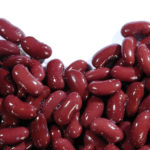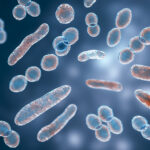By Bonnie Jenkins, Advanced Natural Wellness
I love this time of year! The sun is shining, and my garden beckons. But, too often, I’m so wowed by the flowers that I forget to put on my sunscreen. I know better, I really do. After all, skin cancer strikes more than one million Americans every year – and I certainly don’t want to become one of the statistics. But, even if I slather on sun protection every day, the National Cancer Institute estimates that 40 to 50 percent of Americans who live to age 65 will have skin cancer at least once, and overexposure to ultraviolet (UV) radiation is the primary cause.
Fortunately, I can still get a certain degree of skin protection by eating the right foods and adding some key supplements to my daily routine. Advancements in sun protection – both internally and externally – make it safer for all of us who savor time in the sun.
The Risk Is Real
Although more people are aware of the potential hazards of UV radiation today, the prevalence of skin cancer – basal cell, squamous cell, and deadly melanoma – remains high. Fortunately, in nearly 95 percent of basal cell and squamous cell cases, early detection can result in successful treatment.
Melanoma, on the other hand, is a different story. Deaths from this disease, the seventh most frequent cancer in both American men and women, are estimated to be 7,400 annually. Like basal cell and squamous cell cancers, melanoma is also sometimes curable if caught early enough.
In most cases, the risk of skin cancer is directly related to the amount of exposure a person has had to ultraviolet light, most of which occurs during childhood when long hours are spent outdoors. It’s estimated that 80 percent of total lifetime sun exposure occurs before the age of 18. Experts agree: Protection is mandatory in childhood to prevent skin cancer later in life. But that doesn’t mean you can forgo protection when you’re older.
Open your arteries, improve blood flow for a new health miracle...
Did you know your circulatory system has over 60,000 miles of arteries, veins and other blood vessels, if stretched end to end?
But as you age, your blood vessels undergo changes, which may cause them to stiffen, thicken and get clogged.
GOOD NEWS! Doctors have now identified a “Miracle Molecule” inside your arteries that helps OPEN your arteries and IMPROVE blood flow.
It’s what Dr. Valentin Fuster calls it, "One of the most important discoveries in the history of cardiovascular medicine."To you, that means...
- Healthy blood pressure
- Sharper mind and memory
- Skyrocketing energy and muscular strength
- Increased pleasure and passion in the bedroom
- Improved circulation to every cell and organ in your body
Go here to discover a new natural way to significantly boost the levels of this miracle molecule in YOUR body NOW!
Light of Our Lives
To reduce the threat of skin cancer, it’s critical to understand UV radiation. Ultraviolet radiation from the sun includes ultraviolet A (UVA), which contributes to prematurely aged skin, and ultraviolet B (UVB), the rays responsible for that nasty sunburn. Both types of rays contribute to skin cancer.
When sunscreens were originally developed in the 1960s, manufacturers designed them to shield skin from UVB radiation and listed a sun protection factor (SPF) rating that measured relative protection against UVB only. Today, many products contain ingredients that also safeguard skin from UVA radiation. But you’ll need to read the product label to ensure that it offers full-spectrum protection.
The problem with chemically based sunscreens is that many of the ingredients contain endocrine disruptors. According to one study conducted at the University of Zurich, Switzerland, widely used sunscreen chemicals mimic the effects of estrogen and trigger developmental abnormalities in rats. In the study, the Swiss researchers discovered that five of the six common sunscreen chemicals they tested behaved like a strong estrogen in lab tests. These chemicals, which include benzophenone-3, octyl-methoxycinnamate and octyl-dimethyl-PABA, were also found to cause cancer cells to grow more rapidly.
Other ingredients, like avobenzene, actually form free radicals when exposed to sunlight. Free radicals are unstable molecules that cause cellular damage by stealing electrons from healthy cells – a process called oxidation. Research also shows that Padimate-O and Parsol 1789 damage DNA when exposed to sunlight.
Eat Away Skin Cancer Risk
Although researchers have long known that diet can alter or reduce the incidence of other forms of cancer, recent evidence suggests that diets low in fat and supplemented with selected vitamins and antioxidants also can help protect the skin. Here’s why: Solar radiation interacts with skin cells, forming free radicals that can in turn cause genetic DNA mutations – the precursors of tumors. A diet that neutralizes these free radicals can counteract the sun’s damaging effects.
The World's Quickest Solution for Ending Prostate and Urinary Misery
This has recently been revealed to be one of the only real breakthroughs in prostate health.
The seeds of a strange fruit (sometimes called "Chinese Apples") hold powerful phytonutrients that are a revolution in prostate health.
In fact, UCLA and Veterans Administration research have now proved this to be true.
Not only that, but it may be the worlds quickest solution for ending prostate misery.
Simply stated, these phytonutrients represent a huge step beyond beta sitosterol, saw palmetto, and other phytosterols alone.
Simply click HERE if you want to have fast prostate relief...restful, uninterrupted sleep...no more constant "urges to go"...enhanced virility...and optimal prostate support for life.
First and foremost are fruits and vegetables. While most fruits and veggies offer some antioxidant protection, a few stand out as superstars in the fight against skin cancer. On top of the heap is pomegranate. According to a new study by researchers at the University of Wisconsin, drinking pomegranate juice or taking a pomegranate extract effectively protects skin from UVB rays. Earlier studies show that pomegranates contain several polyphenols and anthocyanidins (pigments that gives certain fruits their dark red colors) that boast antioxidant activity that’s even higher than that of red wine.
Brazil nuts, tuna, and other foods with selenium can also guard against sun-induced skin damage. Selenium is a trace mineral which is a powerful antioxidant. Dietary selenium – the kind that’s naturally in the food you eat – is associated with a reduced risk of non-melanoma skin cancer. The incidence of non-melanoma skin cancer is significantly higher in areas of the U.S. with selenium-poor soils.
Reducing the amount of total fat in your diet is another way to neutralize free radicals and help prevent precancerous skin conditions. According to a study conducted by the Baylor College of Medicine in Houston, people who eat a diet consisting of 36 to 40 percent fat are nearly five times more likely to develop pre-malignant skin lesions than those who keep their fat intake to 20 percent or less.
Go Green
If you want some extra protection before heading outdoors, drink some green tea. The polyphenols found in this tasty beverage are rich in antioxidant activity and have skin-protective qualities. A recent evaluation by researchers at the University of Alabama confirmed that drinking green tea before UV exposure reduces DNA damage and prevents UVB-induced skin tumors. The major antioxidant in green tea – epigallocatechin-3-gallate (EGCG) – also protects skin when used topically. In fact, earlier studies out of England show that EGCG can reduce the number of sunburn cells and protect certain immune-boosting cells.
While you can drink a few cups of green tea before exposure, it may be even smarter to take green tea supplements on a daily basis. Since 70 percent of the sun exposure you receive comes from walking to and from the car or while you’re driving, it’s important to have a daily dose of internal protection. If you opt for a supplement, look for capsules that provide 97 percent polyphenols content – which is equivalent to drinking 4 cups of green tea. Many of these standardized products are decaffeinated.
One Last Thing …
Even with all of these natural sun-guards, don’t even think about foregoing your sunscreen. Sunscreen does serve a purpose if it contains UV-blocking minerals like titanium dioxide or zinc oxide. The key to their efficacy, however, is to apply them properly. The average person needs to apply at least one ounce, about enough to fill a shot glass. It’s also critical that you reapply it every two hours or so when you’re outdoors. And, don’t forget your ears, lips, and the tops of your feet.
Most experts recommend using a product with an SPF of at least 15, although if you’re very fair, you may need SPF 30. If you’re tempted to pick a sunscreen with a super-high SPF, just be aware that the higher the SPF, the more chemicals the manufacturer needs to use. Unlike most sunscreen chemicals, both titanium dioxide and zinc oxide block UVA and UVB. Plus, they’re much safer, since neither will affect your hormonal balance or cause cancer.
For extra protection, bring a hat and lightweight clothing along to the beach or the park. It’s good for your body to obtain natural vitamin D from the sun, so try to spend 10 minutes outdoors without sunscreen early or late in the day.
Research Brief …
A lot of baby boomers looking to retire have been hit hard by the current economic climate. But there may be a silver lining to the recession. A new study says that continuing to work beyond the traditional age of retirement could help ward off Alzheimer’s disease.
The study, carried out by a team from Cardiff University and the Institute of Psychiatry at King’s College London, assessed data from 382 adult male dementia patients. The researchers found no link between employment or education and dementia risk but did find that those who retired late developed Alzheimer’s at an older age than those who chose not to continue work. Each additional year of employment postponed the onset of dementia symptoms by about six weeks. They added that even though the data is only on working men, the conclusions were likely to apply to women as well.
What if you’re already retired? Most experts recommend remaining physically and mentally active to build a cognitive reserve and thus prevent or delay the onset of memory loss. Eat a healthy antioxidant-rich diet, exercise regularly, keep a lid on stress, and challenge your mind every day. Taking 3,000 to 4,000 mg. of a high-quality fish-oil supplement each day can protect your brain cells even more.
References:
Afaq F, et al. Protective effect of pomegranate-derived products on UVB-mediated damage in human reconstituted skin. Expimental Dermatology. 2009 Mar 3. [Epub ahead of print]
Duffield-Lillico AJ, et al. Selenium supplementation and secondary prevention of non-melanoma skin cancer in a randomized trial. Journal of the National Cancer Institute. 2003; 95:1477-1481.
Gruel AK, et al. Photoprotection of UV-Irradiated Human Skin: An Antioxidative Combination of Vitamins E and C, Carotenoids, Selenium, and Proanthocyandins. Skin Pharmacology and Applied Skin Physiology. 2002; 15:307-315.
Katiyar S, et al. Green tea and skin cancer: photoimmunology, angiogenesis and DNA repair. The Journal of Nutritional Biochemistry. 2007;18:287-296






